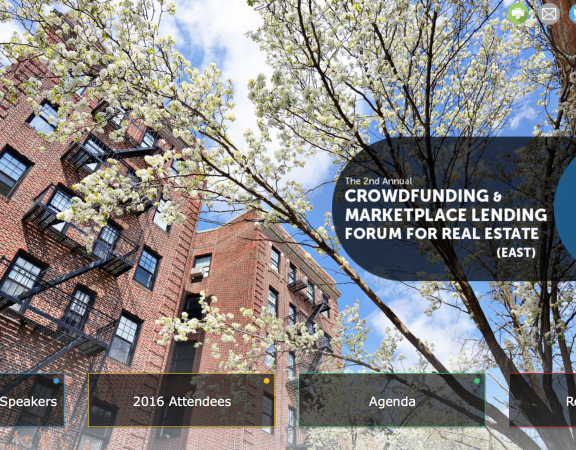If you’ve heard about real estate crowdfunding, you’re most likely pretty excited to get in on the act. After all, crowdfunding is set to be a $2.5 billion industry this year and isn’t showing any signs of slowing down. Those of us who never had the money to become a real estate tycoon could still see some solid profits by getting involved at a much more modest level. That being said, investing of any kind is a highly-regulated industry. You need to be very aware of the rules that apply or real estate crowdfunding could turn into more trouble than it’s worth. Here’s what you need to know before investing a single penny.
The JOBS Act
The JOBS (Jumpstart Our Business Startups) Act, which was passed back in 2013, was created with the goal of trying to get the U.S. economy back up and running. One of the main ways it sought to do this was by making it easier to become an investor, a privilege historically reserved for the very wealthy.
After the JOBS Act was passed and enacted, crowdfunding took off. People could now invest much larger sums of money without having six-figure bank accounts. To better understand this act, let’s look at four main aspects.
Title II
Passed in September, 2013, Title II of the JOBS Act allows general solicitation for the sale of securities. Basically, it allowed people to go out and look for investors for their startup from the general public as opposed to finding large firms that could legally give them the money they required. However, only accredited investors (those with $1 million of net worth or who make $200,000 annually) can actually invest.
Title III
Then, there came title III. The main innovation with title III was that you didn’t actually need accredited investors. Obviously, this was a huge relief to many people who needed money, because it’s much easier to solicit funds when you don’t have to focus only on millionaires.
However, you can’t solicit these funds over the Internet. Title III also states that companies can’t get $1 million or more from non-accredited investors. Still, this was considered an improvement.
Rule 147
Rule 147 refers to what is called an intrastate offering. Say Texas applies Rule 147. This would mean that TX-based businesses can raise money from non-accredited businesses, but only within the state. In order for a Texas company to qualify for Rule 147, 80% of its assets have to be from Texas. Furthermore, 80% of their historical revenues must come from Texas as well.
Regulation A
Prior to Regulation A of the JOBS Act, if you wanted to raise money from investors, you had to go through the SEC and most likely pay some serious fees. This made doing so virtually impossible for many.
However, when Regulation A went into effect, it meant that you could raise up to $5 from accredited investors without having to go through the same lengthy process. This meant fewer fees, a quicker path to getting your money and you could use social media and other platforms to get the word out about your opportunities.
Regulation A+
Finally, there was Regulation A+. Basically, it has the same exact guidelines as outlined above. The “+” was meant to symbolize that this new regulation was going to take the former version a step further. To that end, Regulation A+ allows accredited investors to raise as much as $50 million without needing to go through all the prerequisites otherwise required by the SEC. Again, this opened the door for countless more businesses to get the funds they needed without having to incur serious fees/interest, give up board positions to larger investors or get bought out.
The Truth About Crowdfunding
Interestingly enough, real estate crowdfunding isn’t really crowdfunding, in the strictest sense of the word. In fact, though you’ll hear the above terms a lot, most haven’t really played a role in this type of investing until relatively recently.
Instead, most platforms rely on an exemption, Regulation D, Rule 506, which actually predates the JOBS Act.
Fortunately, if you understand crowdfunding, you basically understand how this kind of investment works. Just know that you don’t actually end up owning the property. Instead, you become part of an LLC (Limited Liability Company), which holds onto the title or provides a loan that is backed up the property.
Your Two Options with Real Estate Crowdfunding
Finally, it’s worth pointing out that there are two different ways you can potentially profit from real estate crowdfunding. One is through debt and the other is through equity.
When you invest in real estate crowdfunding through debt, you’re essentially taking the place of a lender. As such, you are entitled to monthly interest payments, as well as the balance of any unpaid principal at the time of maturity. Although you don’t get the benefit of property appreciation, you will have recourse if the borrower doesn’t pay up by way of foreclosure.
If you go with the debt route, you’ll become an indirect owner of sorts. Your investment will not be secured by the property, which also means you won’t have much in the way of recourse if your venture goes south. Of course, with added risk comes the potential for greater rewards. For one thing, you can now benefit from property appreciation when the home is sold off.
Something like 20% of real estate crowdfunding investments have been the kind structured as debt. The remaining 80% of investments have been backed by equity.
Although the above could make real estate crowdfunding sound a bit complicated, it’s important to appreciate that this industry is growing for a reason. Last year, it was worth $1 billion and this year, that number is expected to hit $2.5 billion. Thanks to an ever-growing amount of platforms, much of the above has been streamlined for you, so there’s no need to look for an accredited investor or handle other matters historically involved with making money with real estate. Instead, just find a platform and begin looking for an attractive opportunity.
Matthew Sullivan
@thecrowdventure






